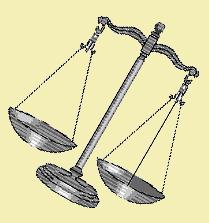 Here's a good one from last week's Miami Herald: Prosecutors seek OK to create phony files:
Here's a good one from last week's Miami Herald: Prosecutors seek OK to create phony files:Florida's prosecutors are floating a proposal to the Legislature to give them the power to secretly falsify public court records -- with a judge's approval -- for undercover law enforcement purposes.How indeed?
Spurred by Miami-Dade State Attorney Katherine Fernández Rundle, the draft bill would limit the authority to manufacture and plant fake documents in court files to 180 days. But it also provides for an unlimited number of 30-day extensions.
"Judges would be very involved in the monitoring. It all has to go through a judge," said Arthur I. "Buddy" Jacobs, general counsel for the Florida Prosecuting Attorneys Association, which supports the bill.
The American Civil Liberties Union of Florida opposes the idea.
"The fundamental problem is that it so goes against our notion of the way our justice system ought to work," said ACLU legislative director Randall Marshall. "How would we ever be able to trust anything in the judicial record knowing that something could be intentionally falsified with a judicial seal of approval?"
A second, longer version of the bill has been prefiled with the House. It would convey authority to falsify any public record to prosecutors, judges, mayors, sheriffs, coroners and other public officers unless they were acting corruptly.Read that paragraph again.
Now wrap your mind around this:
The Miami Herald reported late last year how judges and prosecutors in Miami-Dade had official court records altered and kept secret dockets to disguise what was happening in some court cases.Lovely practice, isn't it? Who wants to make this sort of thing legal?
Two cases were uncovered in which court dockets were altered to cover up the felony convictions of informants, but more are known to exist. Chief Assistant State Attorney Jose Arrojo said authorities have altered the public records of informants for two decades.
...
The prosecutors' push to change Florida criminal statute 839.13 comes amid a statewide inquiry by Supreme Court Chief Justice R. Fred Lewis into the improper hiding of court records. The probe began last summer after The Miami Herald reported that hundreds of civil and criminal cases, mostly in Broward County, were kept hidden on secret dockets.
The Senate sponsor is Dave Aronberg, D-Greenacres, vice chairman of the criminal justice committee. The House sponsor is Rep. Julio Robaina, R-South Miami.Let's get this straight, now:
"Ultimately, this protects the public against the evil of corruption," Aronberg said. "It's just another tool. How else can you get at a corrupt judge unless you create false pleadings?"
If you believe any of that, I've got a bridge to sell you ... unless you'd prefer a swamp!
The Miami Herald article includes all sorts of other sickening details; go have a look if you think you can stand it.